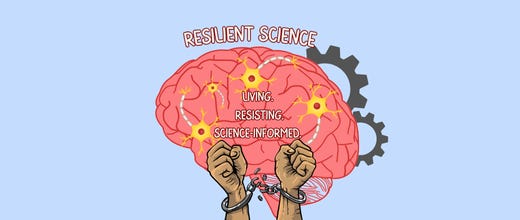“High-Functioning” Isn’t What You Think It Is
What bipolar disorder really looks like beneath the label
Last week, I asked my readers:
What’s one thing you wish you understood better about bipolar disorder—whether it’s brain chemistry, sleep, medication, or just how to survive the bad days?
One response stuck with me:
“I wonder what ‘high-functioning’ means. Are people just masking, or do they really have everything under control?”
It hit hard because I’ve been called “high-functioning” for years. By therapists. Psychiatrists. Even professors. And the truth is, I’ve spent most of that time just trying to survive.
What They Don’t See
When people say “high-functioning,” they often mean: You can get out of bed. You finish your degree. You speak calmly in appointments. You show up.
But what they don’t see is the cost. They don’t see the shutdowns, the collapse after effort, the way you disappear inside yourself. They don’t see the nights where sleep becomes impossible, or the mornings where you still feel empty after 12 hours in bed.
They don’t know that “functioning” is often just masking + pressure + fear of what happens if you stop.
Sleep, Survival, and the Edge of Mania
In my own life, sleep has always been my first warning sign.
If I start sleeping less than six hours a night and still feel alert in the morning, I know I’m on the edge of a manic episode. If I sleep more than ten and wake up feeling like I’ve been hit by a truck, I know I’m slipping into depression.
Sleep is a major indicator, not just of mood, but of where I am in the cycle.
That’s why I always recommend sleep tracking. It doesn’t have to be fancy! Just a simple printable tracker can help you start to notice patterns. For me, it was one of the first tools that helped me understand what my body was trying to say.
“High-Functioning” Is Not a Compliment
One reader, Daniela, wrote something that gave language to what so many of us feel:
“I can’t hold down a job or a romantic relationship, so I don’t consider myself high-functioning. And I’m not good at masking either. People can usually tell there’s something ‘different’ about me.”
Daniela’s honesty opened the door for me to reflect more deeply on my own experience. I think I was forced to be high-functioning. I tried so hard to operate in environments that weren’t built for people like me—without real accommodations, without understanding—until I couldn’t anymore.
From early 2022 until now, I’ve had to learn the same lesson over and over: There are limits to what I can do. That’s not a flaw. That’s the reality of living with a lifelong disability.
You can read more of Daniela’s writing here:
- Daniela CreativeLet’s Redefine Functioning
Functioning isn’t about checking boxes or appearing “fine.” It’s about living as fully as you can while honoring your limits. It’s about surviving, adapting, and making space for truth.
So I want to ask you:
Have you ever been called “high-functioning” while falling apart inside?
How do you define functioning?
What early warning signs help you understand your bipolar pattern?
Drop a comment. Share this with someone who needs to hear it. And thank you to those of you already shaping this space into something powerful.
🧬 With care,
Diego
Resilient Science



Thanks for the shout-out. I'm happy to help.